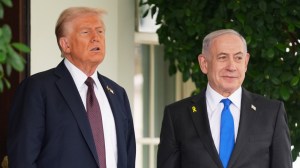IHF has scored but will players be sold a dummy?
On the face of it, the Indian Hockey Federation’s eight-year sponsorship deal with Sahara is the best thing since astroturf. But the ov...

On the face of it, the Indian Hockey Federation’s eight-year sponsorship deal with Sahara is the best thing since astroturf. But the overwhelming shroud of secrecy surrounding the deal raises concerns that the game itself, and those who play it, will not benefit.
When contacted by this paper yesterday for details of the deal, IHF president KPS Gill said: ‘‘We will not reveal to the media how we have to deal with the players.’’
|
Doubting the deal
|
|
• How much is it worth? |
More than 24 hours later, little has changed. It’s still not clear how much money is involved, how much of that will trickle down to the players and what, apart from five-star treatment and an extra astroturf pitch, it actually boils down to.
Indeed, the deal is reminiscent of the days when royalty would shower largesse on sport, no strings attached — and no questions asked. However, if the IHF does not want to court controversy when the game is looking up, it should treat players’ welfare more seriously.
Gill has categorically ruled out any match fees for players. It’s been a thorny issue for players for more than two decades and once the Indian team even refused to play a tournament under Gill in 1998.
Back then, the Indian team — including Dhanraj Pillay — had refused at the eleventh hour to tour Pakistan till the issue of match fees was resolved. The IHF initially promised to pay Rs 25,000 to each player but they closed the issue after the tour.
Soon after the Sahara deal was announced, some of the current players were discussing the idea of approaching the IHF about match fees. Ex-internationals from the 1980s and 1990s, who had originally floated the move, felt that the tie-up with sponsors would be meaningless if there was nothing substantial for the players.
The sponsors may have promised five-star hospitality for team members at training camps, but former Indian captain Pargat Singh says that IHF has skirted the main issue – of paying appearance money to Indian players for tournaments. ‘‘If that is not coming to the players then it (deal) hardly makes any difference to them.’’
‘‘If you are playing for the nation you should not be at someone’s mercy. I will not suggest that players should revolt but they need to make their stand clear.’’
He added that though hockey players are getting better jobs today with PSUs, the issue of paying them match fees cannot be ignored. ‘‘The money part is always bound to be an issue with hockey players since things have hardly changed over the years. In the ‘60s and ‘70s, the daily allowance given to each player at national tournament used to be Rs 10 per match; now it’s just Rs 150 per player. Till 1996 Olympics, we used to get 10 dollars for international tournament and today, it is still 20 dollars.
Indeed, an earlier movement for match fees was in 1989, when Pargat was the captain. ‘‘There was a lot of pressure on the federation at that time and it almost accepted the proposal,’’ recalled former international Jagbir Singh. To deal with the federation a players’ body was formed, a first in Indian hockey. The Hockey Players’ Association proposed that each player get Rs 2,000 per match but the move failed as IHF was able to force the players to withdraw their demand – by pressurising their employers.
Now, says Jagbir, it’s time the current players take up the issue with the IHF and the person who should be leading them is skipper Dhanraj Pillay. ‘‘Pillay has become a role model in hockey. Now he should shoulder the responsibility and talk to the IHF on behalf of his teammates.’’





- 01
- 02
- 03
- 04
- 05


























